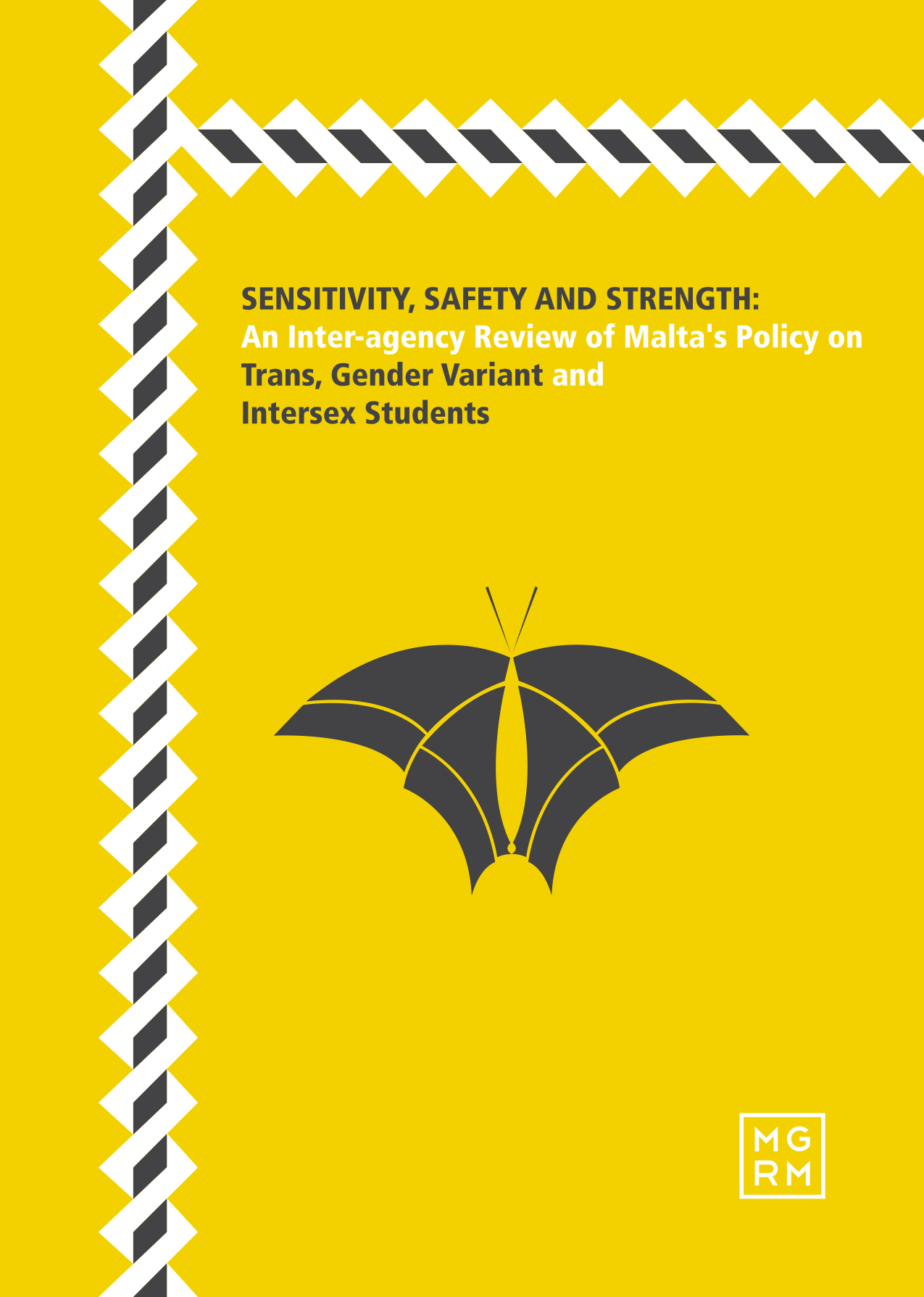On Monday 29 February, together with our project partners MGRM, the Ministry for Education and Employment and the Ministry for Social Dialogue, Consumer Affairs and Civil Liberties, we launched the research report ‘Sensitivity, Safety and Strength: An Inter-agency Review of Malta’s Policy on Trans, Gender Variant and Intersex Students‘.
The report was researched in the context of the project that sought to assess the actual impact of the June 2015 national policy on trans, gender variant and intersex students.
Two primary goals drove the report’s spirit and methodology: to secure a safe learning environment for all students, and to support the full enjoyment of all their fundamental human rights. With this value approach in mind, our research conducted a series of stakeholder meetings in order to assess the actual impact of the June 2015 policy.
A Policy Assessment Tool was designed and presented, largely along the lines of the human rights indicator model promoted by the United Nations High Commissioner for Human Rights. The Tool is intended to be the basis for regular, comparative policy assessments that would identify implementation trends, challenges and actual impact on the intended target groups/themes.
Our report makes a number of recommendations, including:
- ensure access by the school community to information on services provided by community-based organisations;
- engage in effective out-reach to Church and Independent Schools, in order for them to endorse the June 2015 policy and to participate in sharing of best practices, data collation and national monitoring exercises;
- design and implement a structured training programme on LGBTIQ matters in schools, starting from professional training at the University of Malta and following with on-going professional growth;
- provide schools with guidelines on attire and physical appearance (e.g. are boys allowed to wear ear-rings or to grow their hair?);
We were happy that this project enabled us to to work hand in hand with NGO and institutional partners, on the basis of a common understanding of the need to ensure a rights-based and child-centric approach to this sensitive issue. This is definitely a project implementation methodology that we will seek to follow in other areas.

